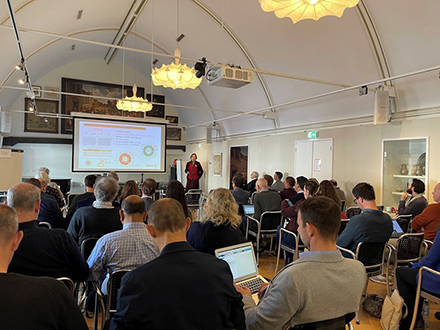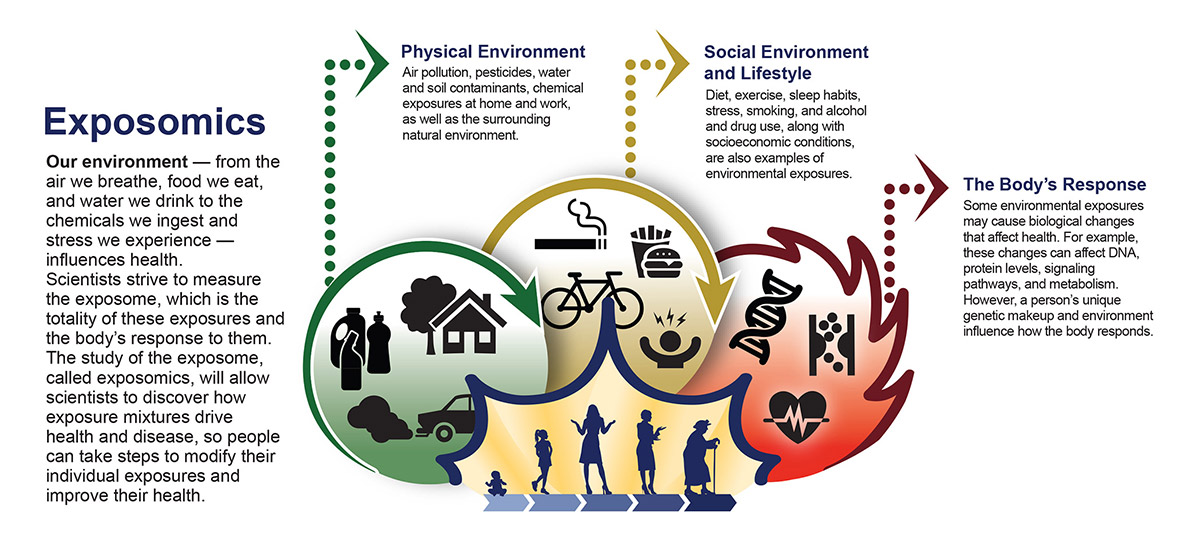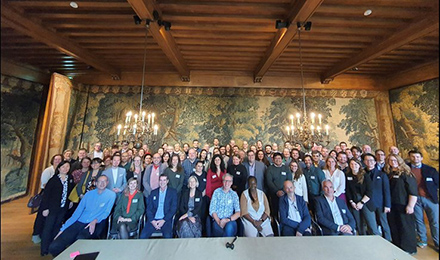By Kit Brady

International environmental health researchers and experts gathered in Utrecht, Netherlands to discuss progress in and next steps for the field of exposomics. (Photo courtesy of Roel Vermeulen)
More than 100 international environmental health researchers and experts, including National Institute of Environmental Health Sciences (NIEHS) researchers, gathered in Utrecht, Netherlands to discuss progress in and next steps for the field of exposomics, or the study of the exposome, which is the sum of all environmental exposures that the body experiences and the body’s response to them. Exposomics research studies how the mixture of environmental exposures that make up the exposome interacts with a person’s unique genetic and physiological characteristics to affect health and is crucial to understanding health promotion and disease prevention. The field of exposomics has led to a change in thinking in environmental health sciences, not only within NIEHS, but globally. NIEHS is accelerating research to understand certain priority areas in the field of exposomics, including the types, levels, and combinations of exposures people experience; how those exposures affect human health; and how to mitigate harmful exposures.

(Image courtesy of NIEHS: Exposure Science)

Researchers gathered for EIRENE and IHEN Joint Meeting in Utrecht. (Photo courtesy of Roel Vermeulen)
The Environmental Exposure Assessment Research Infrastructure (EIRENE) and International Human Exposome Network (IHEN) Joint Meeting in Utrecht focused on EIRENE’s Preparatory Phase Project. The Preparatory Phase Project aims to harmonize and consolidate resources for exposome research across Europe and identify the research gaps, societal needs, and policy considerations of exposomics. Throughout the meeting, researchers from the NIH-funded Network of Exposomics in the United States (NEXUS), which was recently launched as a coordinating center to foster innovation and collaboration in exposomics research, met with other exposomics experts to discuss connecting the exposomics community, expanding global outreach, and supporting the infrastructure needed to advance exposomics. The aims of EIRENE and IHEN closely align with NEXUS’s mission to develop global collaborative networks, new technology, state-of-the art approaches, and robust infrastructure in the field of exposomics.
“For the past several years the European research community has been well-organized when it comes to exposome research,” said Gary Miller, Ph.D., Vice Dean for Research Strategy and Innovation at Columbia University and co-lead of the NEXUS Coordinating Center. “With NIH’s support of NEXUS, the U.S. now has a complementary structure to foster global collaboration of exposomics. Having NIEHS leadership at the meeting helped demonstrate the clear commitment from the U.S. and I am confident that the next few years will be highly productive for exposomics. The aims of EIRENE and IHEN, as well as other meeting attendees, closely align with NEXUS’s mission to develop global collaborative networks, new technology, state-of-the art approaches, and robust infrastructure in the field of exposomics.”


